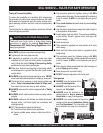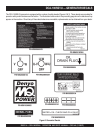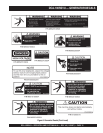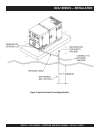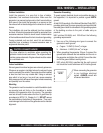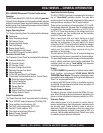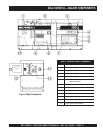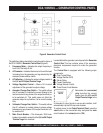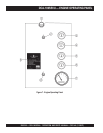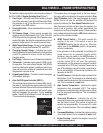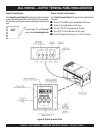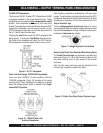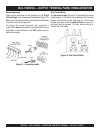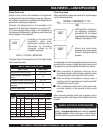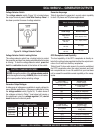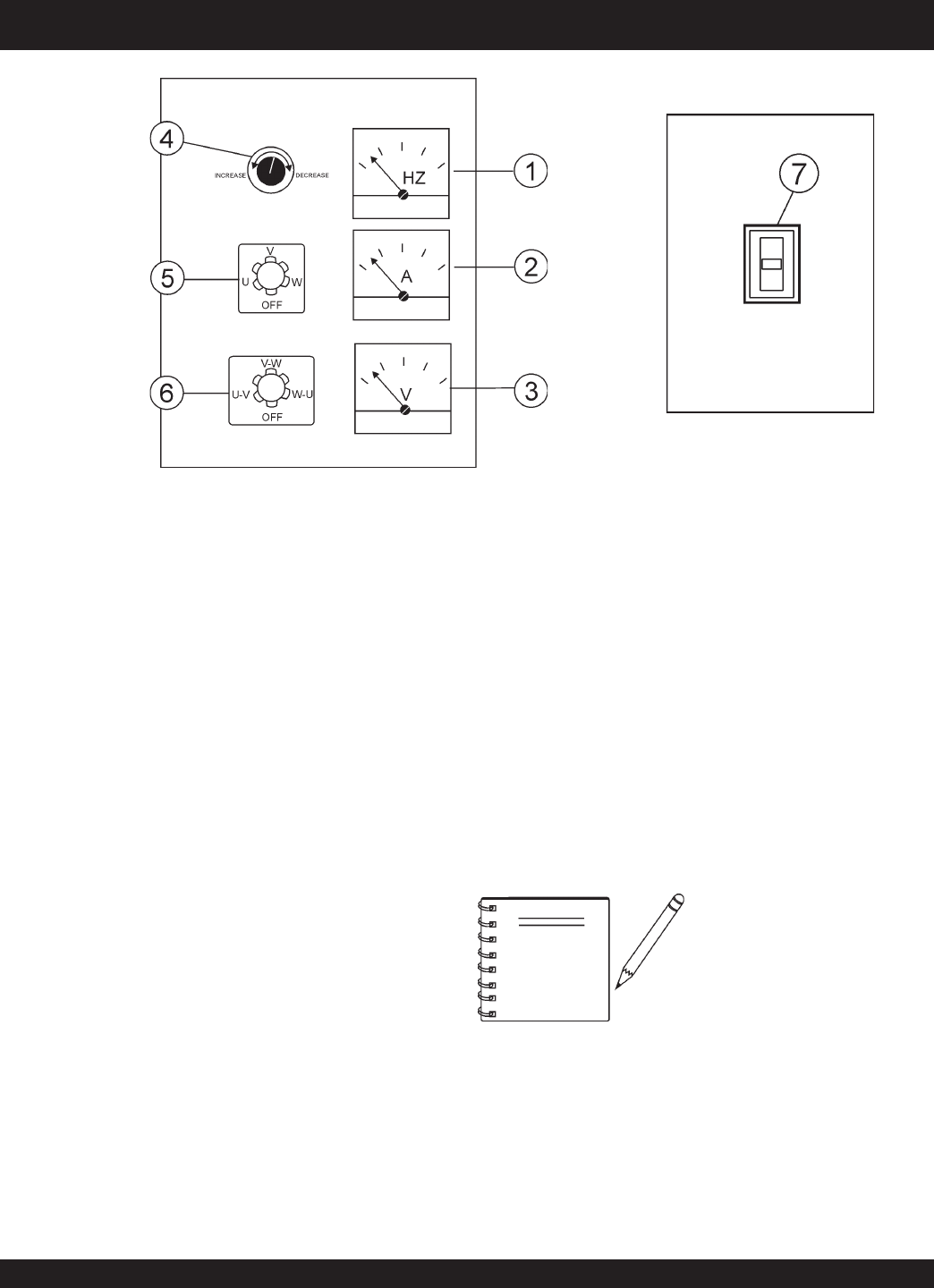
DCA-100SSVU— OPERATION AND PARTS MANUAL — REV. #0 (11/05/07) — PAGE 21
1
DCA-100SSVU — GENERATOR CONTROL PANEL
The definitions below describe the controls and functions of
the DCA-100SSVU
Generator Control Panel
(Figure 6).
1. Frequency Meter – Indicates the output frequency in
hertz (Hz). Normally 60 Hz.
2. AC Ammeter – Indicates the amount of current the load
is drawing from the generator per leg selected by the
ammeter phase-selector switch.
3. AC Voltmeter – Indicates the output voltage present at
the
U,V, and W Output Terminal Lugs
.
4. Voltage Regulator Control – Allows ±15% manual
adjustment of the generator’s output voltage.
5. Ammeter Change-Over Switch – This switch allows
the AC ammeter to indicate the current flowing to the
load connected to any phase of the output terminals, or
to be switched off. This switch does not effect the
generator output in any fashion, it is for current reading
only.
6. Voltmeter Change-Over Switch – This switch allows
the AC voltmeter to indicate phase to phase voltage
between any two phases of the output terminals or to
be switched off.
7. Main Circuit Breaker – This three-pole, 250A main
breaker is provided to protect the the
U,V, and W Output
Terminal Lugs
from overload.
Located behind the generator control panel is the
Generator
Control Box
. This box contains some of the necessary
electronic components required to make the generator
function.
The Control Box is equipped with the following major
components:
■■
■■
■
Over-Current Relay
■■
■■
■
Voltage Rectifer (AVR)
■■
■■
■
Starter Relay
■■
■■
■
Current Transformer
■■
■■
■
Voltage Selector Switch
■■
■■
■
Three Phase Circuit Breaker
Figure 6. Generator Control Panel
Remember the
overcurrent
relay
monitors the current
flowing from the
U,V, and W
Output Terminal Lugs
to the
load.
In the event of a short circuit or over current condition, it will
automatically trip the 250 amp main breaker.
To restore power to the
Output Terminal Panel
, press the
reset
button on the overcurrent relay and place the
main
circuit breaker in the
closed
position (ON).
NOTE



